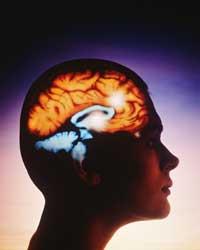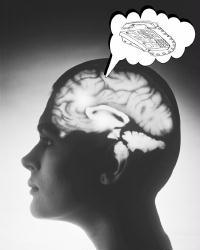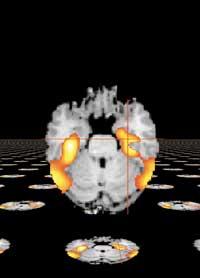Scientists lost in memory
2001/01/28 Mendiburu, Joana - Elhuyar Zientziaren Komunikazioa

As memory is something that we cannot control, surprises and sometimes becomes incomprehensible. We still do not know why we commemorate some events and at the same time it is incomprehensible that an event is remembered in a few moments and in others not. However, in the world of memory, not everything is unknown. It is evident, for example, that there are different types of memory in terms of duration and content. It is also clear that memory is based on the effects of neuronal attacks and, although not demonstrated, as age advances, learning new things and evoking them becomes more difficult. So far, the reason for the little memory of older people was the aging of neurons, but the conviction that has been assumed for years has been altered by a new research. In fact, according to the research carried out by Elizabeth Gould with monkeys at Princeton University, every day new neurons emerge.
Memories yes, but then...

As mentioned in the introduction, there are still many things to clarify. However, as the basis of all research, the exact location of memory is known. According to experts, the first traces of memory, that is, the first union of neurons occurs in the hippocampus. The hippocampus temporarily preserve the neuronal groupings and after a period of time go to the frontal lobe. It seems that the hippocampus is the cradle of memories and the frontal lobe is the hiding place of memories.
On the other hand, for a memory not to be forgotten forever, it is enough to activate through a stimulus one of the corresponding neuronal circuits. The stimulus can be an image, a person, a phrase, or an event. This is what we do every day without wanting and also without our control.
Despite the curiosity that is around memory, it cannot be said that there is too much clarity. And it is that, although they have come to determine where neuronal junction is performed, among the researchers there are many discrepancies regarding the generation of neurons. So far almost all experts shared that the number of congenital neurons did not change, but a new research has put it me. In fact, it has been proven that every day thousands of new neurons occur, although it is still not very clear if they have the capacity to evoke them. However, they are in the affirmative sense, since between the hippocampus and the frontal lobe moves a continuous series of neurons.
Memories are not credible
Just as memory is the cause of many scientific discussions, memories are often the cause of family disagreements. Often, two people have very different versions of the same event. It is not yet possible to explain why that happens, but it seems they are on the way.

According to a study at the University of Concordia, memories change. Memory is not static, it is something that evolves every day. All the elements of the memory are restructured and ordered daily and what is remembered is the last structuring. Of course, memories do not change completely from morning to night. In addition, favorite memories are not spared from those changes.
It is not very clear how changes occur, but there are some theories. According to Jean Roch Laurence, research director at the University of Concordia, the brain only recalls the most important facts and details are forgotten. Then, remembering the event again, the details are completed to make them credible. The brain forgets the origin of details, so it can read or include in memory any detail seen. Thus, memories are changing, and you don't think that the events that have marked our lives get rid of those changes. The most surprising thing is that the person believes to have lived what he really remembers. That is, he believes that the events occurred just as he really reminds them.
Be clear, therefore, with memories, and not to be a cascabel. From now on we will also have to learn to recognize the limits of memories.
Published in 7K

Gai honi buruzko eduki gehiago
Elhuyarrek garatutako teknologia





